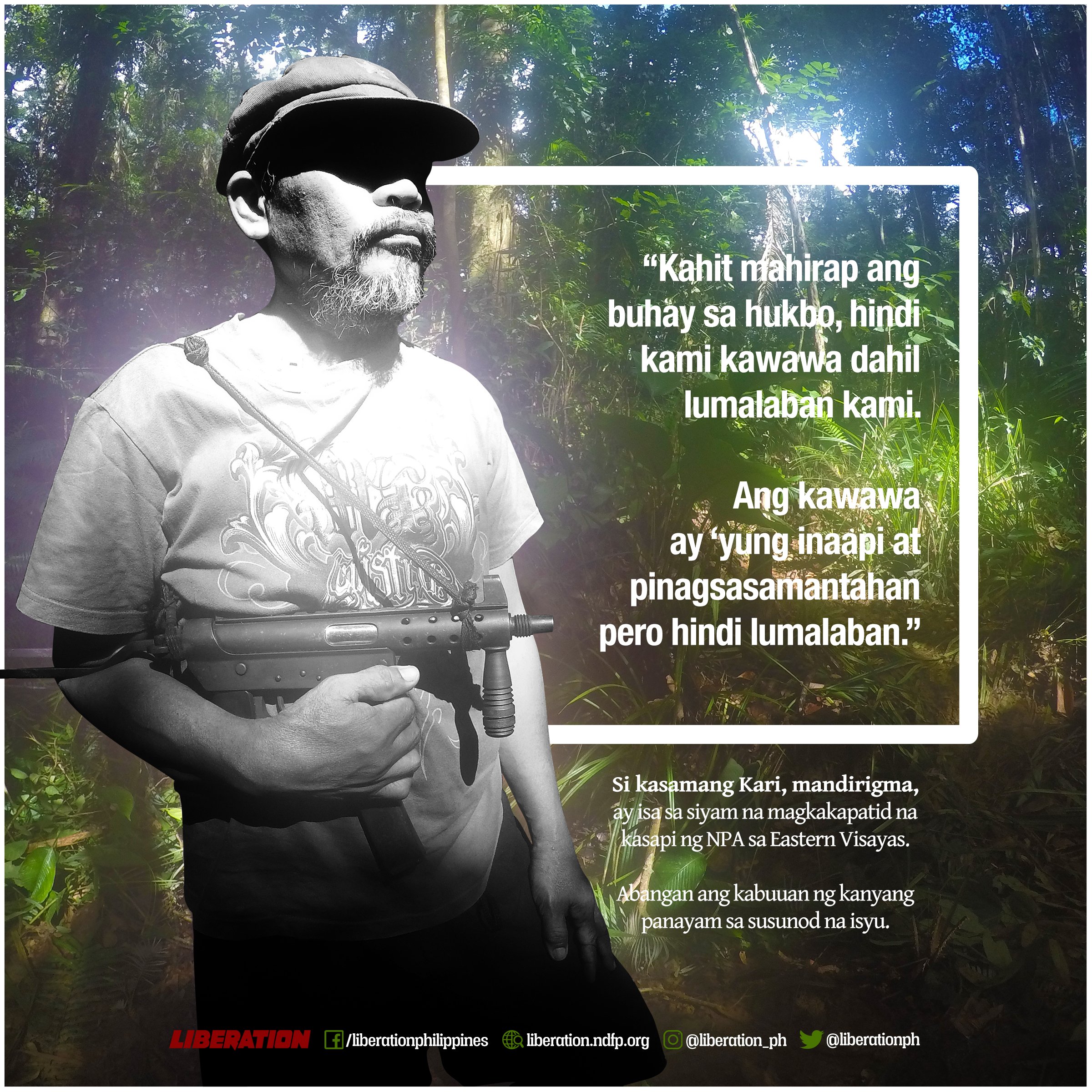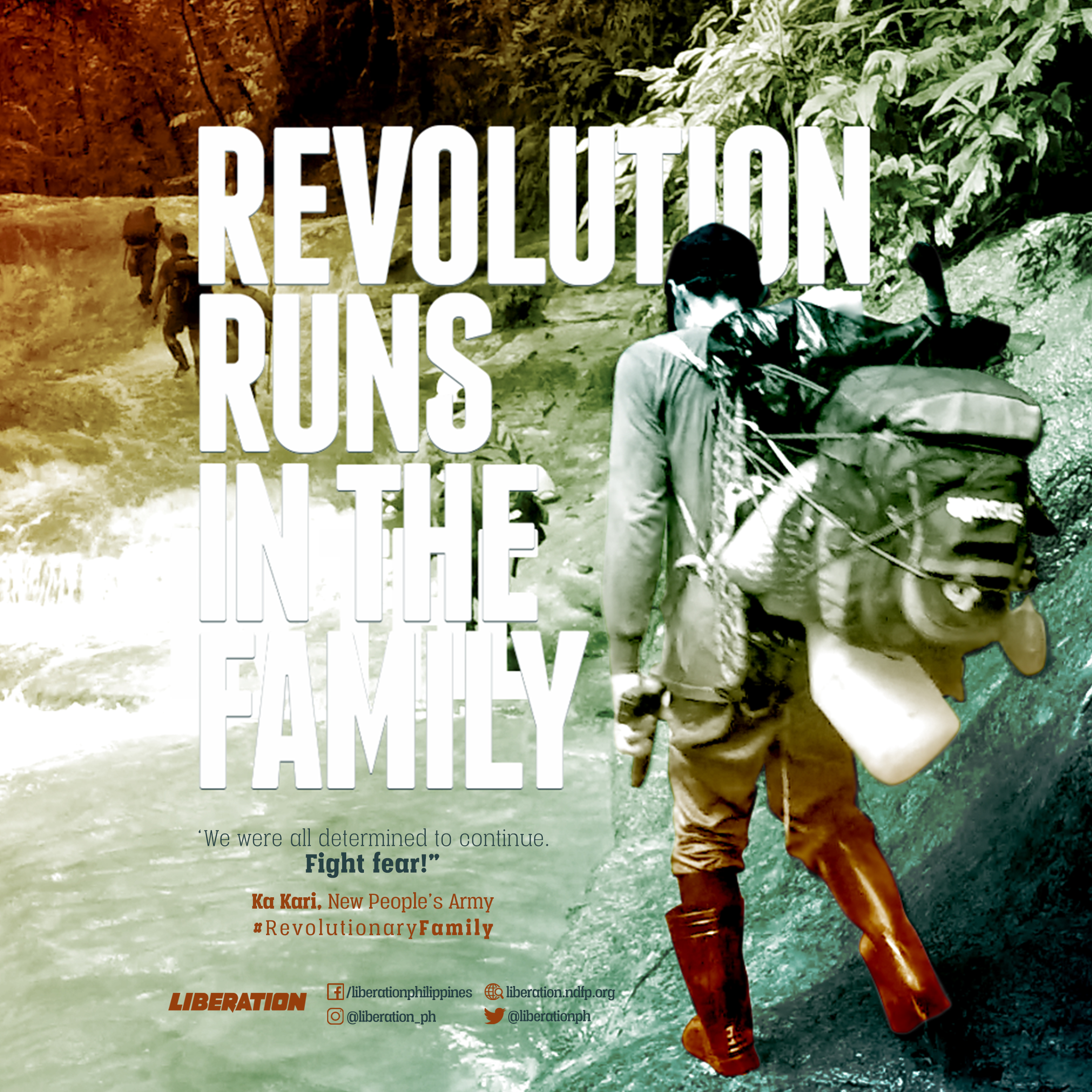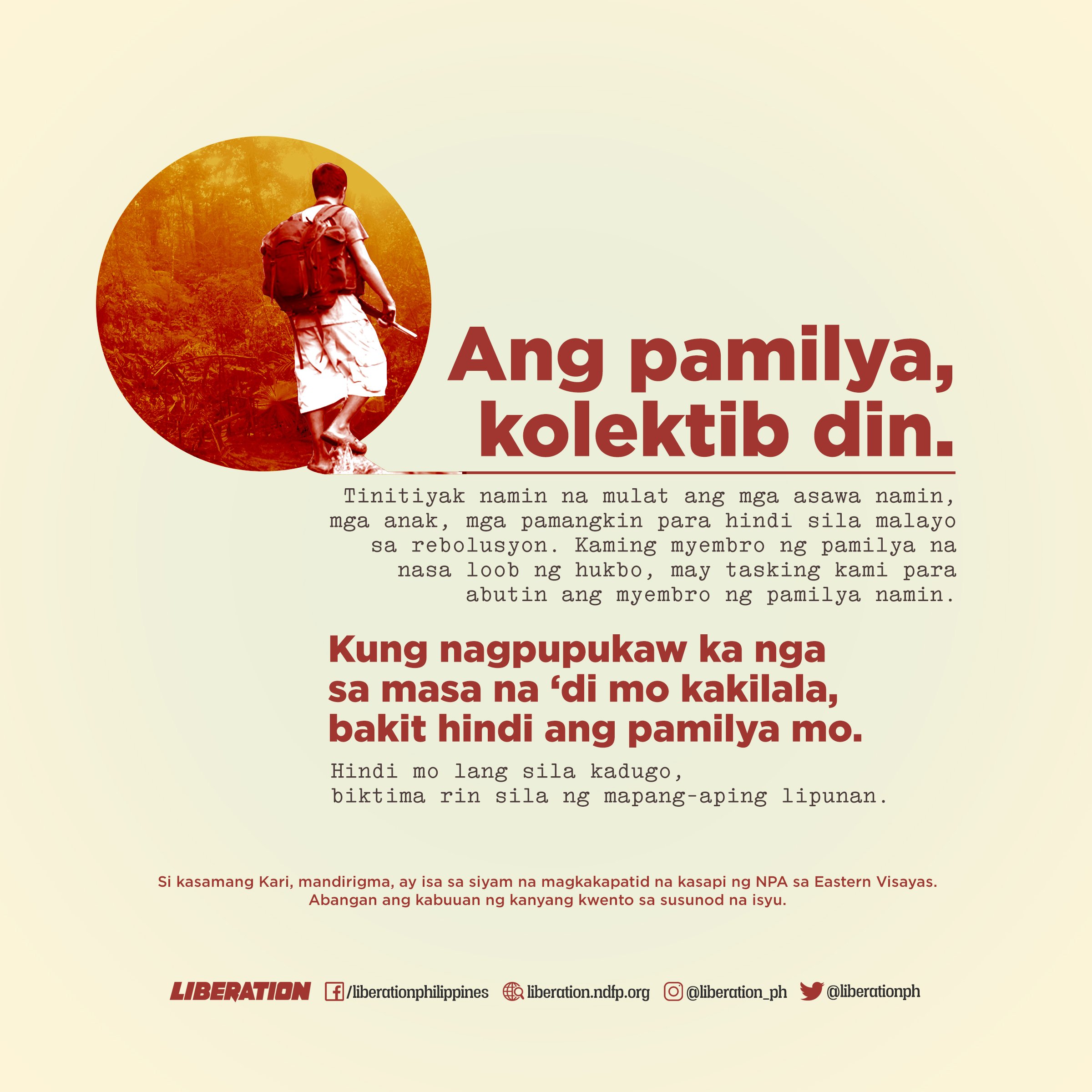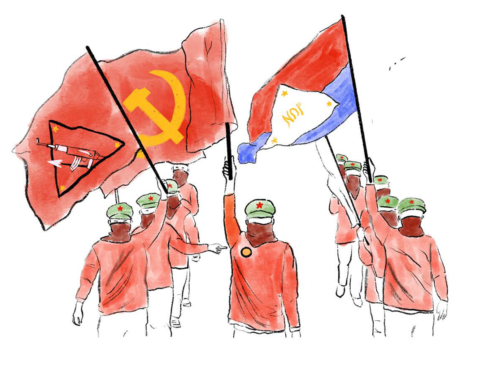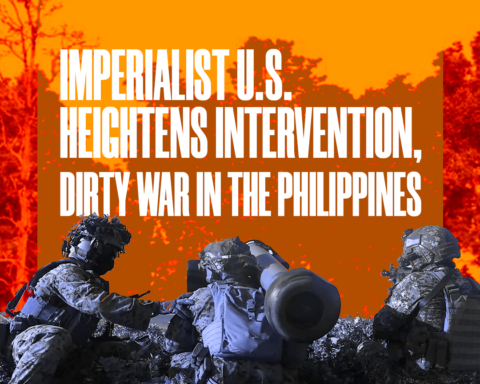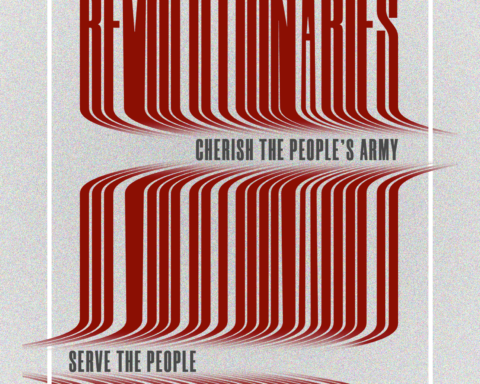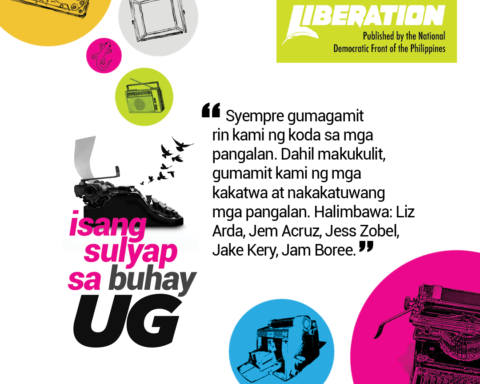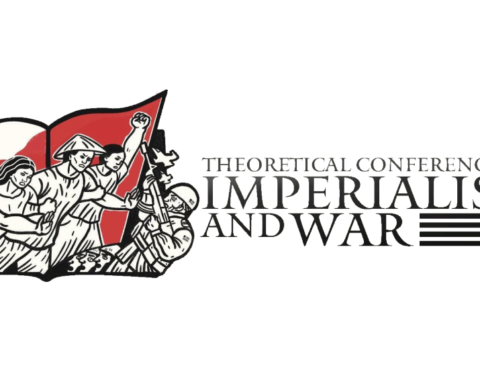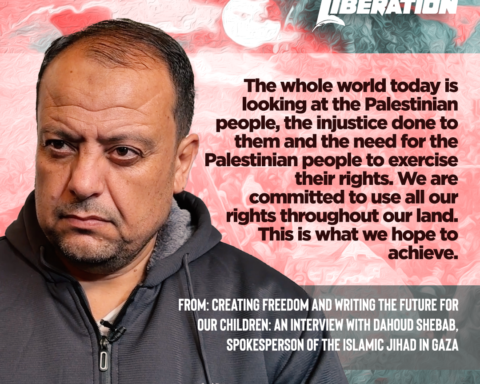by Iliya Makalipay
It was in 1979 when members of the CPP-NPA reached Ka Kari’s barrio. They often met with his family and discussed with them the aims of the revolution. After a year, Ka Kari and his elder brother decided to go fulltime in the revolutionary movement. After a year of being a staff member of the regional committee, he joined the team that established the first unit of the New People’s Army (NPA) in a district in Eastern Visayas. That was in 1982.
While Ka Kari and his brother Ing-ing were becoming absorbed with their revolutionary work, they had to deal with the opposition from their eldest brother who was against with their involvement in the CPP-NPA. But two years later, in 1984, the elder also joined the NPA.
It was a professor from Cebu who stayed in their house who finally recruited his eldest brother. “But my brother and I never failed to write our family, to tell them about our work as red fighters—organizing the community towards building revolutionary organizations, helping in production work and pursuing agrarian revolution, engaging enemy troops among others,” he explained.
The brothers wanted their family to know that they were not abandoned, that the revolution is the best they could offer them and the people in general. They were persistent, too, in inviting their loved ones to visit them whenever the red fighters were camped.
The nine siblings were deployed in various lines of work and territorial organs within the region. Wherever they were, they looked for family and clan members and kept in touch with them, “to make sure they were informed about the revolution.” The clan members were also tapped for various support work. “Wherever they are, even those residing outside the region, we make sure that comrades get in touch with them.”
As Ka Kari and his brothers and sisters got married, the revolutionary family grew. Sons and daughters were cared for by in-laws who have become part of the movement, too. Having maintained a close relationship with the nephews and nieces, “the children naturally had their own “idols” among us, depending on who they are closest to.”
But it was not easy at first. “The children resented us. They argued and fought us,” said Ka Kari. But like what they did before, Ka Kari and his siblings persistently explained to them the struggle for liberation and democracy. It paid off, he said because now, “Linyado na rin sila. Some are still studying while others are waiting to reach the age of 18.”
Eventually, sons and daughters and nieces and nephews, upon reaching the right age, also became part of the movement, either as red fighters or organizers in the barrios where they lived or in the schools where they studied. “We look for ways to sustain those who wish to continue their studies,” Ka Kari said. “Also, those who have no good reason to join the revolutionary movement were not recruited.” Expectedly, there were also those who lied low and left the guerrilla zone.
Family of martyrs
It has already been 37 fruitful years for Ka Kari in the red army when the CPP celebrated its 50th anniversary. Of the nine siblings, only three are still alive to celebrate the occasion—Ka Kari, Ka Resty and Ka Nonoy. Five of Ka Kari’s siblings had been killed while serving the revolution. One was abducted and has never been surfaced since 2005. All in all, 14 of Ka Kari’s family members have become martyrs of the revolution.
In 1987, Ka Kari’s younger brother Ramil, their sixth, was killed by the military. It was the first death among Ka Kari’s siblings. He was 18 years old. The brother was part of the armed city partisan unit and was tasked to transport a wounded comrade back to the guerrilla zone. He and another comrade were on their way back to the city when soldiers arrested them. His comrade was tortured and chopped to death because he refused to tell where the other comrades were. Ka Kari’s brother was also killed right after, for the same reason.
Ka Kari himself was arrested in 2006 and spent seven years in jail. “Only two of my siblings did not experience imprisonment,” he remarked. But each of those who were jailed would always find their way back to the guerrilla zone.
“Our family has long accepted that death is inevitable. Every death in the family strengthened our resolve to continue. Afterall, those deaths do not invalidate the basis of the struggle, of why are here.”
Family meetings are occasions to process the loss of loved ones. “Waray magulang, waray manghud, waray ranggo (We don’t mind who is the eldest or the youngest, there’s no ranking here),” he jested. A representative from a higher Party organ is usually invited in these meetings. When Ka Kari was released after almost a decade of imprisonment, they held a family meeting. “Our family has grown, the nephews and nieces are now married. Some of them are now also working fulltime in the revolutionary movement. There were already 14 deaths in the family, 14 martyrs. After each member spoke, it was clear that we were all determined to continue, “Fight fear!” is how they ended their meeting.
Raising a revolutionary family
The family of Ka Kari did not simply follow each other’s footsteps. Theirs was a product of a persistent and painstaking work of arousing, organizing and mobilizing the masses for the people’s war. It stemmed from the comrades’ consciousness that their family is among the oppressed and exploited majority and that liberation could only be attained by actively participating in the people’s revolutionary movement.
Ka Kari’s words sum it up: “Ang pamilya kolektib din. Tinitiyak namin na mulat ang mga asawa namin, anak, mga pamangkin para hindi sila malayo sa rebolusyon. Kaming myembro ng pamilya na nasa loob ng hukbo, may tasking kami para abutin ang myembro ng pamilya namin. Kung nagpupukaw ka nga sa masa na ‘di mo kakilala, bakit hindi ang pamilya mo. Hindi mo lang sila kadugo, biktima din sila ng mapang-aping lipunan.”
“Your family is also your collective. We make sure our spouses, children, nephews and nieces are aware of the situation and don’t distance themselves from the revolution.”
Through the years, family members would urge them to come home. To which he would reply, “you come here (to the front). No matter how hard you try, as long as oppression and exploitation exist, you will always be a victim.”
“Kahit mahirap ang buhay sa hukbo, hindi kami kawawa. Ang kawawa ay yung mga inaapi at pinagsasamantalahan pero di lumalaban,” was how Ka Kari described the life in the people’s army.
“Life may be hard in the people’s army, but don’t pity us. Pity those who are exploited but do not fight back.”
